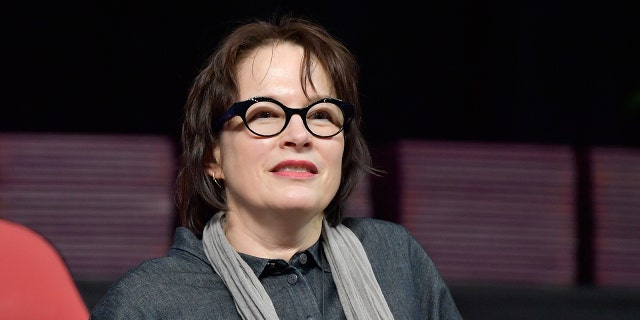Fox News Flash top headlines for November 24
Fox News Flash top headlines are here. Check out what’s clicking on Foxnews.com.
A man convicted of raping best-selling author Alice Sebold 40 years ago was exonerated following a producer working on a film adaptation of the writer’s memoir finding inconsistencies with the story.
“I’ve been crying tears of joy and relief the last couple of days,” Anthony Broadwater, 61, told The Associated Press on Tuesday. “I’m so elated, the cold can’t even keep me cold.”
Anthony Broadwater, who spent 16 years in prison, was cleared Monday by a judge of raping Sebold when she was a student at Syracuse University, an assault she wrote about in her 1999 memoir, “Lucky.” The memoir preceded Sebold’s book, “The Lovely Bones,” which became a bestseller after its release in 2002 and was later made into a movie.
The exoneration comes after a producer working on a film adaptation of the memoir became skeptical that Broadwater was a guilty man. Initial media reports stated the adaptation of “Lucky” was a Netflix project, but the streaming and production company said it is not involved in the project.
Tim Mucciante, who has a production company called Red Badge Films, had signed on as executive producer of the adaptation but became skeptical of Broadwater’s guilt when the first draft of the script came out because it differed so much from the book.
“I started poking around and trying to figure out what really happened here,” Mucciante told the AP on Tuesday.
BOSTON, MA – MAY 08: Author Alice Sebold receives an Honorary Doctor of Humane Letters Degree and delivers the Commencement Address to graduating students at the 2016 Emerson College Commencement Exercises at Agganis Arena at Boston University on May 8, 2016 in Boston, Massachusetts. (Photo by Paul Marotta/Getty Images)
(Paul Marotta/Getty Images)
Mucciante said that after dropping out of the project earlier this year, he hired a private investigator who put him in touch with Hammond, of Syracuse-based CDH Law, who brought in fellow defense lawyer Melissa Swartz, of Cambareri & Brenneck.
Broadwater’s attorney, David Hammond, and Swartz credited Onondaga County, New York, District Attorney William Fitzpatrick for taking a personal interest in the case and understanding that scientific advances have cast doubt on the use of hair analysis, the only type of forensic evidence that was produced at Broadwater’s trial to link him to Sebold’s rape.
Fitzpatrick told state Supreme Court Justice Gordon Cuffy at the court hearing that Broadwater’s prosecution was an injustice, The Post-Standard of Syracuse reported.
“I’m not going to sully this proceeding by saying, ‘I’m sorry.’ That doesn’t cut it,” Fitzpatrick said. “This should never have happened.”
Sebold, 58, wrote in “Lucky” of being raped as a first-year student at Syracuse in May 1981 and then spotting a Black man in the street months later that she was sure was her attacker.
“He was smiling as he approached. He recognized me. It was a stroll in the park to him; he had met an acquaintance on the street,” wrote Sebold, who is White. “‘Hey, girl,’ he said. ‘Don’t I know you from somewhere?’”
Sebold went to the police, but she didn’t know the man’s name and an initial sweep of the area failed to locate him. An officer suggested the man in the street must have been Broadwater, who had supposedly been seen in the area.
Broadwater was arrested, but Sebold failed to identify him in a police lineup, picking a different man as her attacker because “the expression in his eyes told me that if we were alone, if there were no wall between us, he would call me by name and then kill me.”
Broadwater was tried and convicted in 1982 based largely on two pieces of evidence. On the witness stand, Sebold identified him as her rapist. And an expert said microscopic hair analysis had tied Broadwater to the crime. That type of analysis has since been deemed junk science by the U.S. Department of Justice.
“Sprinkle some junk science onto a faulty identification, and it’s the perfect recipe for a wrongful conviction,” Hammond, told the Post-Standard.
The AP said messages to Sebold seeking comment were sent through her publisher and her literary agency.
Broadwater, who has worked as a trash hauler and a handyman in the years since his 1999 release from prison, told the AP that the rape conviction blighted his job prospects and his relationships with friends and family members.
The Associated Press contributed to this report.
Source: Read Full Article


